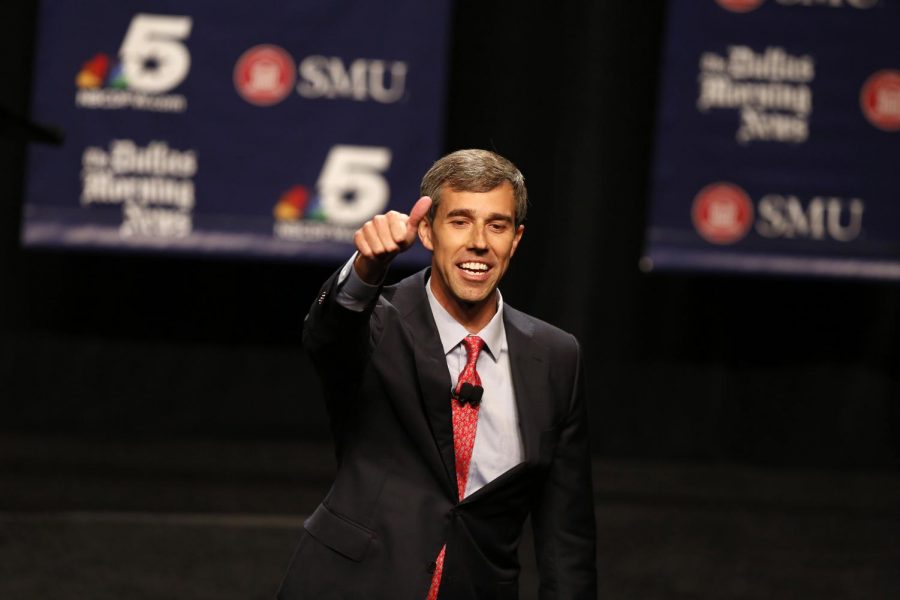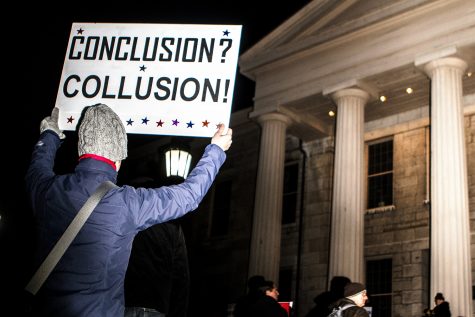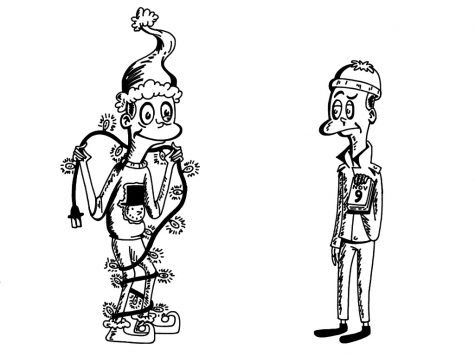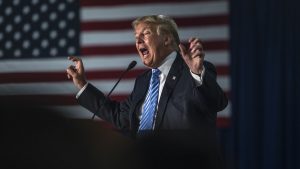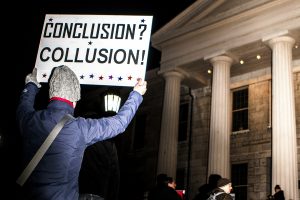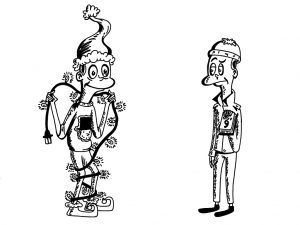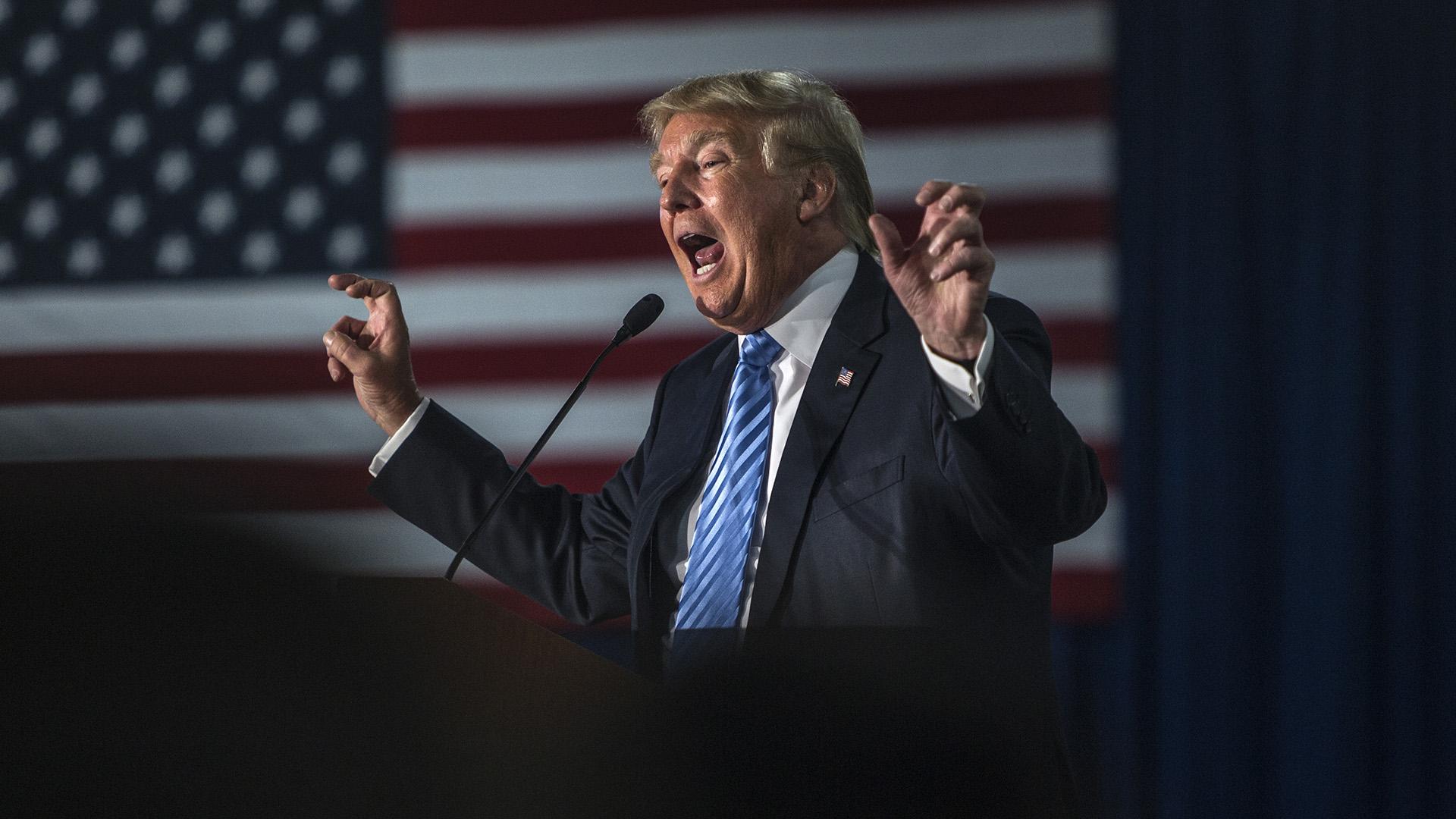Banerjee: The striking similarity between Beto O’Rourke and Bobby Kennedy
In many ways, Beto O’Rourke’s campaign has mimicked that of Robert F. Kennedy through their shared goals and impressive abilities to appeal to key demographics. What does that mean for O’Rourke in 2020?
Rep. Beto O’Rourke (D-Texas) during a debate with Sen. Ted Cruz (R-Texas) at McFarlin Auditorium at Southern Methodist University in Dallas on Friday, Sept. 21, 2018. (Nathan Hunsinger/Dallas Morning News/TNS)
November 11, 2018
The recent midterm elections gave a platform to one of the most interesting races in recent memory. The last time Democrats in Texas won a statewide office was in 1994, and since then, the margins of loss for Texan Democrats have been wide for all candidates. But Beto O’Rourke, a Democrat from El Paso, changed that notion radically — for a time, the country genuinely wondered if Texas would turn blue.
O’Rourke and his campaign very much exist within the context and framing of history. As a Senate candidate, O’Rourke galvanized crowds and moved people in ways that hint at the beginnings of a new political movement. The roots of this can be found in the 1960s, specifically concerning Robert F. Kennedy, the U.S. attorney general under his brother John. While perhaps a cheap comparison to make, it’s difficult to ignore the immediate Kennedy associations with this new charismatic, Irish-Catholic politician.
RELATED: Voter turnout increases across Iowa
O’Rourke’s race was one that felt like the culmination of changing tides and previous blue pushes in the South. Much of the Beto narrative can be connected to a part of the Kennedy legacy — Bobby Kennedy, a fierce social rights activist and politician from the 1960s, was known for his ardent support of civil rights leaders like Martin Luther King Jr. and tough crackdown on organized crime. After King’s assassination, Kennedy gave one of the most moving, extemporaneous speeches in contemporary American history.
“In this difficult day, in this difficult time for the United States,” Kennedy said, standing on the bed of a flatbed truck, “it is perhaps well to ask what kind of a nation we are and what direction we want to move in.”
The speech proved the character of the 42 -year-old presidential candidate: He proved himself to be an ally to the people beyond scripted performances. His speech was delivered only a couple of hours after the assassination, but it was full of poise, grace, and, most importantly, passion.
“What we need in the United States is not division; what we need in the United States is not hatred; what we need in the United States is not violence or lawlessness; but love and wisdom, and compassion toward one another, and a feeling of justice toward those who still suffer within our country, whether they be white or they be black.”
RELATED: Midterm elections solidify Iowa as purple state
This impromptu speech was mirrored, in ways, during the 2018 midterm election. O’Rourke’s response to a question at a town hall meeting on how he felt about the NFL kneeling controversy depicted some of the same passionate empathy that Kennedy’s speech did. Tracking the American Civil Rights Movement from “the young girls who died in the church bombing” to “those who took their lives into their hands riding those Greyhound buses […] who knew full well they would be arrested,” O’Rourke stood with the kneeling football players.
“I can think of nothing more American than to peacefully stand up, or take a knee, for your rights, anytime, anywhere, anyplace,” he ended his speech.
O’Rourke’s charismatic approach to politics — his deep-rooted interest in the entirety of his home state and its people — were at the core of his platform. It is no surprise that he bears a striking similarity to Kennedy. In more ways than one, the young politician embodies the persuasive, passionate optimism of Kennedy. He speaks for the people, and seemingly has inspired them in a similar way to Kennedy. Both appealed to the same groups — black, working-class, and Hispanic voters — under the same types of reform and policy. If you look online, O’Rourke has become somewhat of a beacon pointing where people want the country to head. Rather than a politician looking for office, many saw O’Rourke as an emblem of what American politics could look like — and they still do.
O’Rourke is at the head of a movement, regardless of how you consider his loss in his midterm race. Where that movement will take us as we approach 2020 is unclear, but, for now, it’s evident that O’Rourke will not be stepping out of the spotlight any time soon — nor should he.



